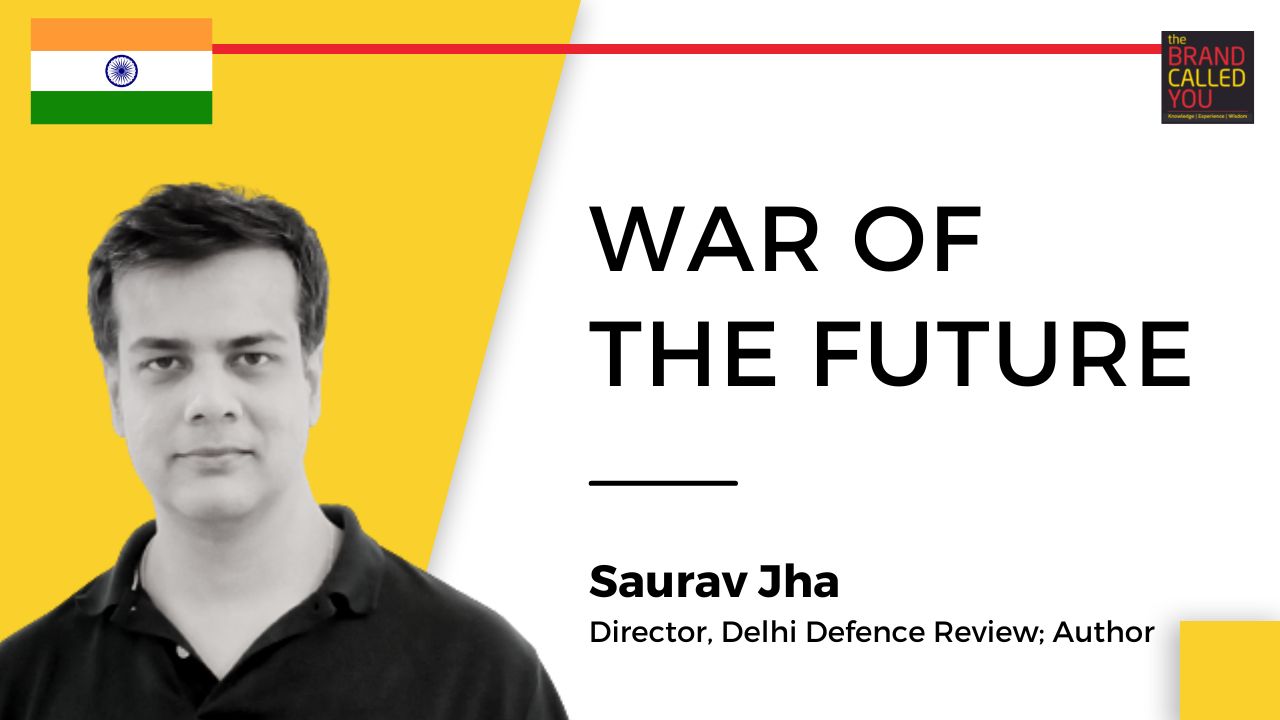Podcast: Play in new window | Download
Follow TBCY RSS
Saurav Jha, Director, Delhi Defence Review; Author
- Saurav is the director of the Delhi Defence Review.
- He is a Strategic Affairs Expert and Commentator.
Overview
The Himalayan range is bordered on the northwest by the Karakoram and the Hindu Kush ranges, on the north by the Tibetan Plateau, and on the south by the Indo-Gangetic Plain. In this episode, we have Saurav Mishra who talks about defence and energy. He also talks about his latest book titled Negotiating the New Normal.
00:32- About Saurav Jha
- Saurav is the director of the Delhi Defence Review.
- He is a Strategic Affairs Expert and Commentator.
- He’s the author of several books including Negotiating the New Normal: How India Must Grow In A Pandemic-Ridden World.
07:05- What are some of the geopolitical challenges we face with China and then Pakistan?
- This Himalayan frontier is highly unstable because any power to the north of the Himalayan borderland needs to exert its influence on the south.
- According to Brzezinski, the area is one of the Eurasian shadow zones.
- These are places where you see India and China jockeying for a better position.
- So this is the main reason why the Himalayan borderline cannot be delineated or demarcated.
- What is defensible today may not be defensible tomorrow, given the enemy’s actions on the infrastructure fund.
16:09- What is happening in Pakistan vis a vis India?
- Pakistan thinks that India has a policy wherein it wants to make sure that Pakistan stays together but remains unstable politically.
- The Chinese have supplied them with research reactors, which can be used to breed plutonium 239.
- They are now moving from Pu 235-based weapons to Pu 239-based weapons which are smaller because plutonium 239 has a smaller critical mass and it can be more efficient.
- They want to maintain independence from India but they are also adding offensive elements to the military machine so that they can undertake limited offensive in concert with their Chinese allies.
20:18- Tell me about your book, and what was your hypothesis?
- I always felt that the field of economics, in its effort to break away from being aligned with any other field, has lost something in the process, especially macroeconomics.
- It emerged from my view that we need to study larger affairs as a sort of interaction between geoeconomics and geopolitics.
- So the basic thesis is that the unipolar world is now essentially on its way out.
RESOURCES:
You can connect with Saurav Jha | LinkedIn
Enjoy this podcast?
If you learned new insights about defence and energy, subscribe and share it with friends!
Love to give us 5 stars? ⭐⭐⭐⭐⭐ If you do, we’d love a review from you. Help us reach more people to keep them in the know as we talk to leaders, high achievers, and thought leaders from diverse backgrounds and nationalities. Excellence can come from anywhere; stay in the know, and hear from emergent high achievers and gurus.
Stay updated with what’s shaping the world today through the latest The Brand Called You Podcast episode. Follow us on iTunes, Spotify, and Anchor.fm.
Don’t forget to follow and message us on these platforms!
Website: https://tbcy.in/
Facebook: https://www.facebook.com/followtbcy
LinkedIn: https://www.linkedin.com/company/tbcy/
Twitter: https://twitter.com/followtbcy
YouTube: https://www.youtube.com/c/followtbcy
Thanks for listening!
Profile
- Saurav is the director of the Delhi Defence Review.
- He is a Strategic Affairs Expert and Commentator.
- He’s the author of several books including Negotiating the New Normal: How India Must Grow In A Pandemic-Ridden World


